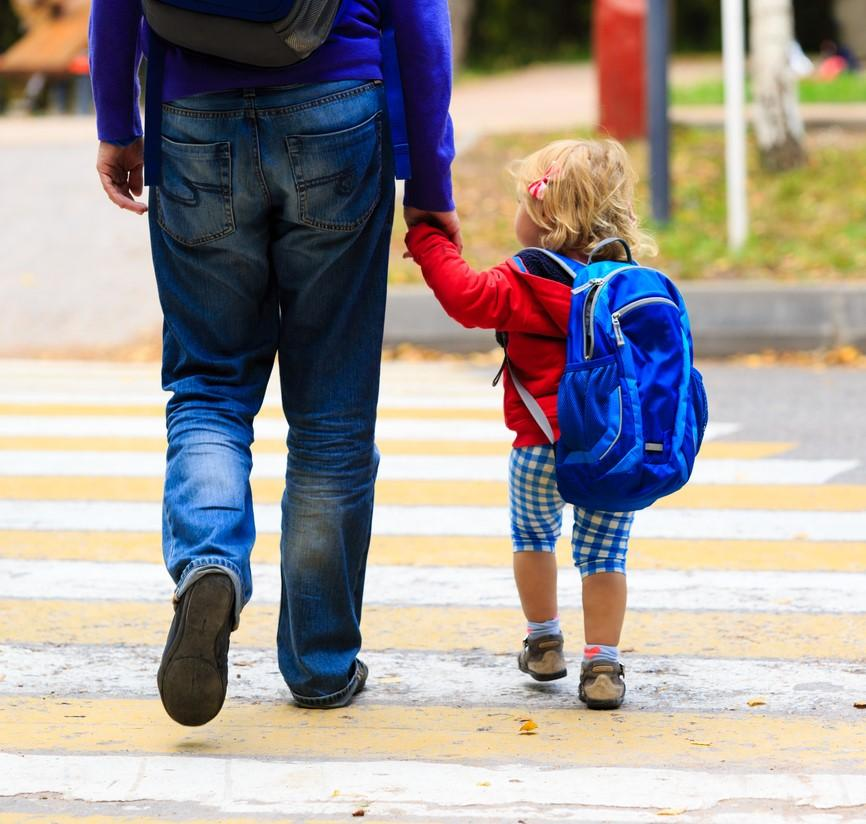UK children who spent more time in childcare in the first months of the COVID-19 pandemic—including those from disadvantaged backgrounds—maintained more advanced vocabularies throughout the following months, suggest parent-reported data published yesterday in the Journal of Early Childhood Research.
As part of an ongoing study, a team led by University of Leeds researchers parsed childcare data from 171 children aged 5 to 23 months who attended or didn't attend childcare from March to June 2020.
Their aim was to determine whether previously demonstrated links between early-childhood education attendance and the development of language and executive functions, problem-solving skills, and personal-social development were maintained during the first year of the pandemic.
Assessing school-readiness skills
The researchers collected data from online questionnaires in spring and winter 2020 and spring 2021. The questionnaires asked parents about their daily lives and children's abilities, including the number of words their child said or understood in categories such as vehicles, adventures, and animals and their child's executive function (control of attention, behavior, and emotion).
Parents also recorded how often their child showed certain behaviors and how often they played games with their child designed to elicit signs of skills such as waiting, finding, and sorting. To capture problem-solving skills, parents reported whether, for instance, their child could retrieve candy from a bottle by upending it.
Early childhood education and care (ECEC) settings faced significant disruption during the COVID-19 pandemic, compromising the continuity, stability and quality of provision.
The researchers then analyzed links between socioeconomic background, children's growth in language and cognitive skills, and time spent in childcare before the spring 2020 lockdown, during all three lockdowns, and in the intervals between those lockdowns.
"Early childhood education and care (ECEC) settings faced significant disruption during the COVID-19 pandemic, compromising the continuity, stability and quality of provision," the study authors wrote, noting that disruptions also occurred due to staff shortages, cleaning regimens, quarantines, and removal of some materials from classrooms because of contamination concerns.
"Three years on from the first UK lockdown as pandemic-era preschoolers enter formal schooling, stakeholders are concerned about the impact of the disruption on children’s cognitive and socioemotional development, especially those from socioeconomically disadvantaged backgrounds," the authors added.
The study was a follow-up to an analysis the same team conducted in spring 2020 on early-childhood development during the first 6 months of the pandemic, which produced similar findings.
Improved problem-solving, interpersonal skills
ECEC was tied to more advanced receptive vocabulary (the set of understood words) and personal-social development in all children, with the added benefit of growth in expressive vocabulary (words people use to express themselves) and communication and problem-solving skills for children from disadvantaged backgrounds.
As pandemic-era children progress to primary school, we discuss the importance of adapting their learning conditions and adjusting the expectations placed on them.
For each day of the week spent in childcare, toddlers could produce, on average, 29 more new words and understand 16 more new words than those who didn't attend childcare.
"Overall, results suggest that ECEC had sustained learning benefits for children growing up during the pandemic despite ongoing disruption to settings, with specific benefits for children from less affluent home environments," the researchers wrote. "As pandemic-era children progress to primary school, we discuss the importance of adapting their learning conditions and adjusting the expectations placed on them."
Lead author Catherine Davies, PhD, of the University of Leeds, said the results underscore the importance of childhood education in narrowing the gap in early development and leveling socioeconomic inequalities for disadvantaged children.
"It's essential that we facilitate access for the families who will benefit most from this support, at this crucial stage in youngsters' lives," she said in a university news release. "Increasing the reach of ECEC is a smart way of providing post-pandemic opportunities for socialisation, emotional wellbeing, physical development, and foundational academic skills, rather than compensating for 'missing skills.'"
The authors call for better promotion of the role of ECEC in child development, support for lower-income families to access early childhood education (eg, simplifying the application process, increasing funding), more funding for ECEC, and schools to foster development in children who may not have mastered school-readiness skills.
"ECEC plays a crucial role in child development, now also supporting children born during COVID-19 as they develop through the early years and transition to primary school," Davies said. "At the same time, the sector faces significant challenges stemming from a range of changes to early years entitlements and family work patterns, alongside crises in funding and recruitment.




















